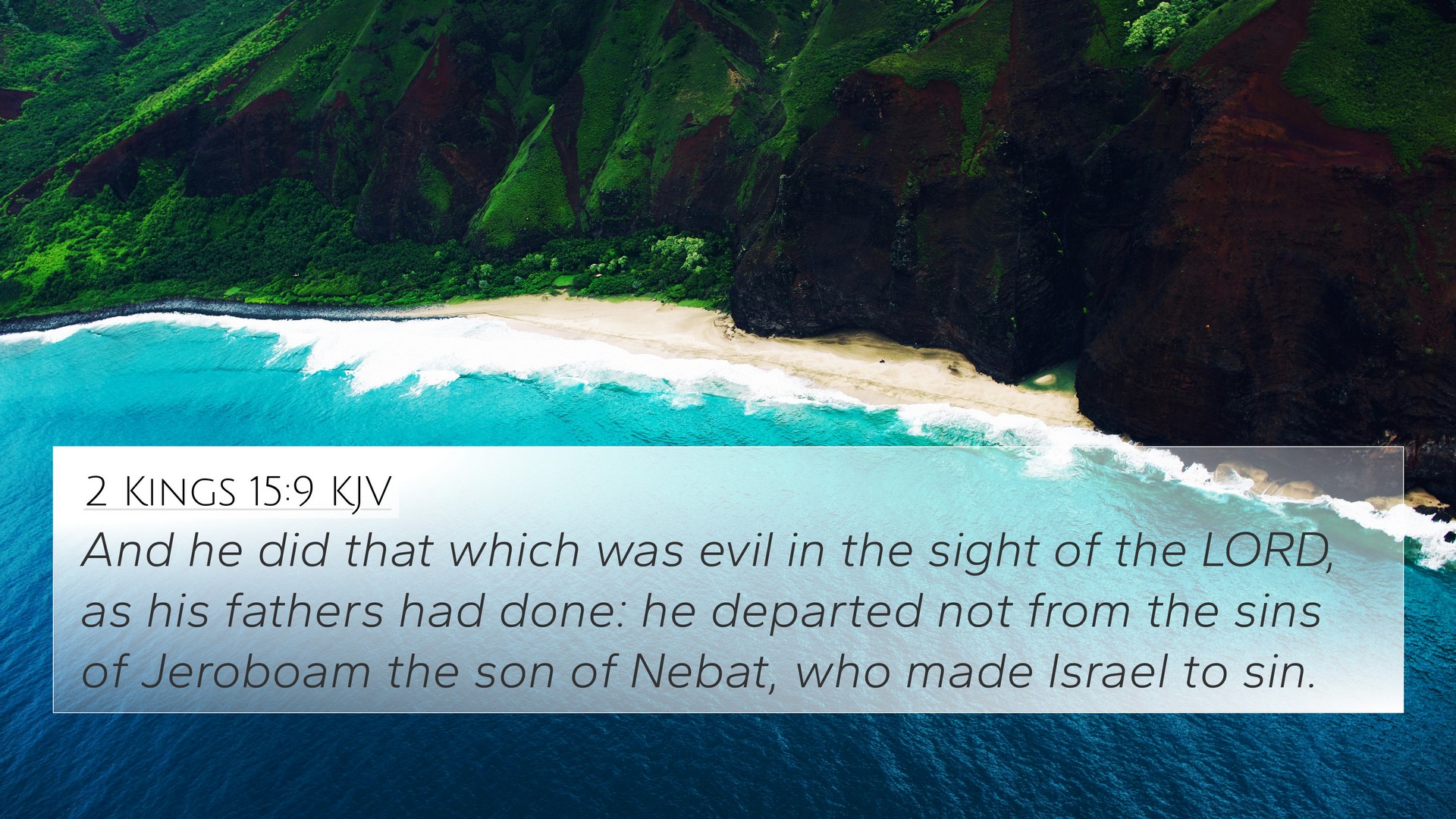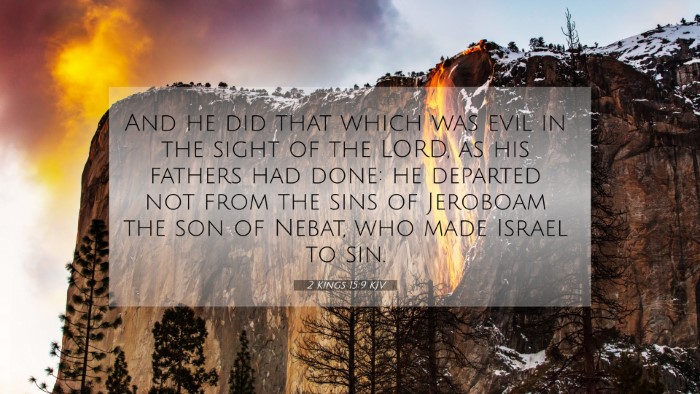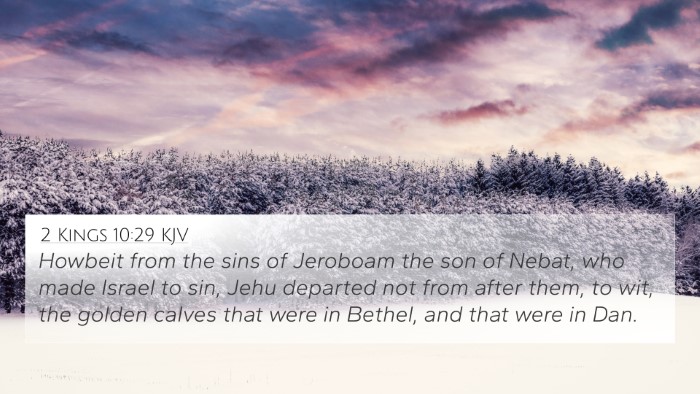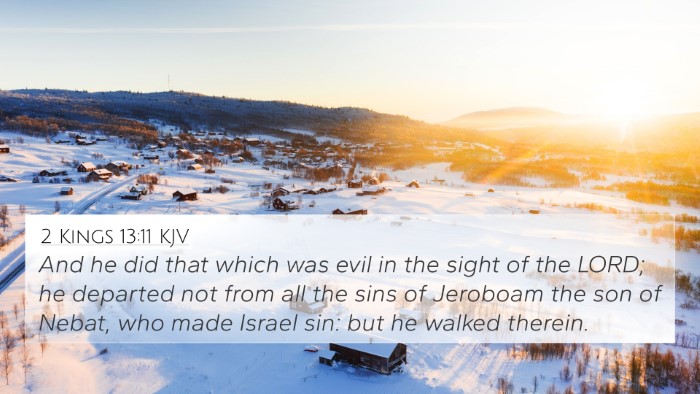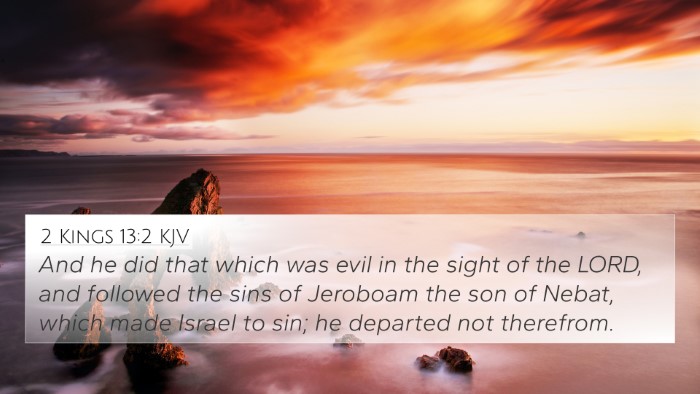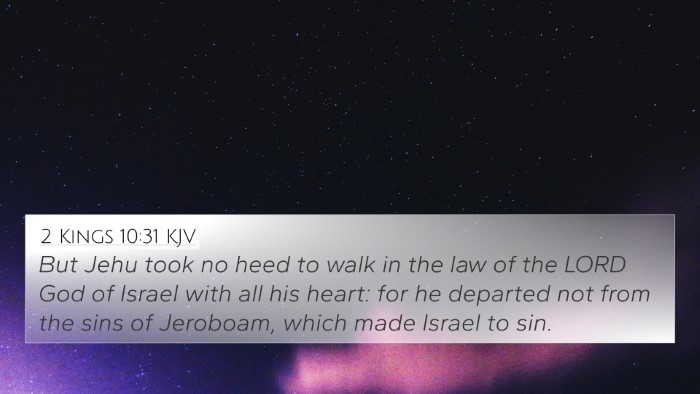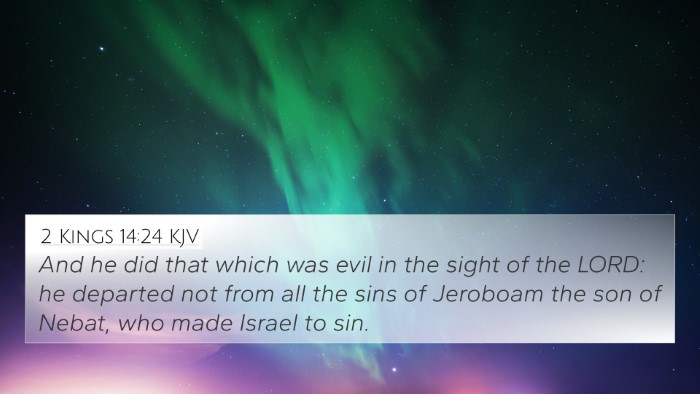Understanding 2 Kings 15:9
The verse 2 Kings 15:9 states: "And he did that which was evil in the sight of the LORD, as his fathers had done: he departed not from the sins of Jeroboam the son of Nebat, who made Israel to sin."
Contextual Background
This passage is part of the historical narrative detailing the reign of various kings of Israel and Judah. It focuses on the kings' deeds, often assessing them in the light of their adherence to or rejection of God's commands. The reference to Jeroboam the son of Nebat highlights a pivotal moment in Israel's history, where his sins set a precedent for idolatry among the northern tribes.
Verse Interpretation
Matthew Henry emphasizes the continual cycle of disobedience among Israel's kings, suggesting that this verse illustrates a lack of spiritual integrity and a detachment from divine commandments. Albert Barnes adds that the evil actions of this king mirror those of his predecessors, indicating an enduring legacy of sin.
Adam Clarke further elaborates that this adherence to idolatry represents a societal failure to recognize God's sovereignty, reinforcing the inevitability of divine judgment against such unrighteousness.
Thematic Connections
This verse connects to several significant themes within the Bible, especially concerning leadership, idolatry, and the consequences of sin. The recurring mention of Jeroboam serves as a warning against turning away from God and allows for cross-references to later texts that explore the consequences of such actions.
Cross-References
Here are some relevant Bible cross-references that relate to 2 Kings 15:9:
- 1 Kings 12:28-30 - Jeroboam's establishment of idol worship.
- 2 Kings 14:24 - Continuation of evil deeds by other kings.
- Jeremiah 2:19 - God’s indictment of Israel for its sins.
- Hosea 13:1 - The judgment of Israel and references to their sin.
- Amos 7:9 - Prophetic condemnation of the sins of Israel.
- 2 Chronicles 33:2 - The evil acts of kings and their implications.
- Romans 1:21-23 - New Testament parallels regarding idolatry.
- Galatians 6:7 - The principle of reaping what one sows.
- Revelation 2:5 - The call to repentance for fallen churches.
Conclusion
In summary, 2 Kings 15:9 encapsulates the warning against idolatry and continual sin present throughout the narrative of the Israelite kings. The insights provided by public domain commentaries deepen our understanding of God’s unchanging standards and the dire consequences that follow when leaders abandon righteousness. By examining this verse alongside its cross-references, readers can gain a holistic view of its themes and implications within the broader biblical narrative.
Further Study and Resources
For those interested in deeper exploration of biblical themes and texts, utilizing a bible concordance or bible cross-reference guide can be invaluable. Engaging with tools for bible cross-referencing enhances one's understanding of linking scriptures and facilitates a more profound study experience.
Consider the following methods for cross-referencing bible study:
- Consulting a bible concordance to identify thematic links.
- Using a bible cross-reference system for context comparatives.
- Engaging in cross-referencing bible study methods that highlight relational scripture.
- Employing bible reference resources for comprehensive analysis.
